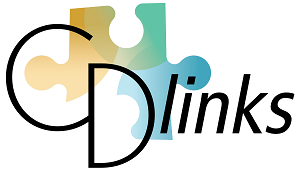Work Package 6
Capacity building, dissemination and stakeholder engagement
Two critical aspects of CD-LINKS relate to sharing the results and insights of the project with potential users and interest groups outside of the consortium and fostering next-generation expertise in the climate and development research field. In short, CD-LINKS aims for high visibility and broad societal impact. Hence, central to the dissemination and exploitation of knowledge created in CD-LINKS will be thoughtfully packaged informational material and open-access tools that ensure diverse sets of users are able to exploit project results for their purposes, including follow-up studies. Examples include Policy Briefs, a Summary for Policy Makers, a host of scientific publications in peer-reviewed journals, presentations at scientific conferences, an interactive scenario database, and a mapping tool that helps visualise hot spots and criticalities for policy making in G20 countries. CD-LINKS partners will leverage their extensive, far-reaching networks in Europe, China, India, Russia, the US, and Japan in order to distribute their results to potentially interested parties across the globe. Targeted communication measures will stimulate further interest and generate awareness of the project amongst the various segments of civil society (research, commercial, environmental, policy making, education, etc.). This will be achieved through organising Stakeholder and Expert Workshops, having a presence at the upcoming UNFCCC meetings, and harnessing synergies and collaborations with other major international initiatives. Furthermore, CD-LINKS will utilise a suite of modern communication and marketing methods to attract the attention of a wide, international audience: for example, the CD-LINKS project website, timely press releases and newsletters, and the strategic use of social media.
An additional component of the CD-LINKS dissemination and exploitation strategy comes in the form of capacity building and knowledge sharing. CD-LINKS will (i) set up a dedicated Exchange Program for early- to mid-career scientists within the project, and (ii) engage external analysts and researchers via a Summer School, organised and hosted by CMCC, and by expanding IIASA’s long-standing Young Scientists Summer Program (YSSP).
